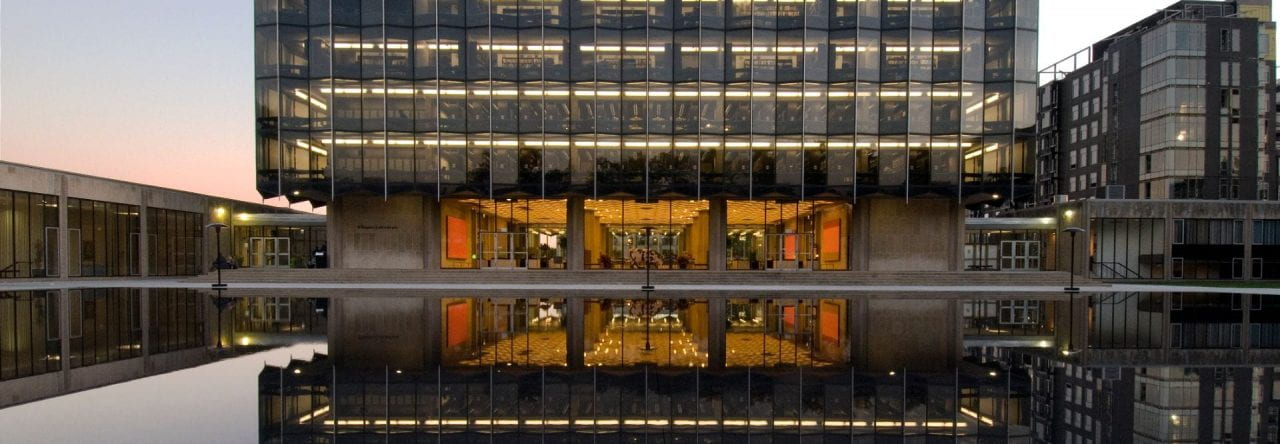By Alexandra Maloney, ’23
The past year and a half has presented a host of obstacles for the world and for the Law School community, and among them was the ability to complete pro bono work while being confined at home. However, through the resilience and creativity of student organizations like Spring Break of Service, opportunities to connect students to public interest organizations for pro bono work remotely flourished last year. I sat down with Kendall Bryant ‘22, president of Spring Break of Service, to discuss her experience doing pro bono service remotely.
Spring Break of Service (SBOS) is a student-run organization that connects law students to week-long pro bono opportunities during the Law School’s spring break. Last year, SBOS partnered with Louisiana Capital Assistance Center (LCAC), a nonprofit organization that provides legal services to indigent individuals charged with capital crimes. Normally, students would travel on-site during spring break to do in-person field work, but this year, participants worked on projects from home.
Kendall highlighted her prior background in public service as a crisis counselor for the National Suicide Hotline as being an impetus for attending law school and joining SBOS. “When I talked to callers, external circumstances and pressures would often be the reasons why people were in dire mental states. I often gave them legal referrals but quickly became aware of how overburdened free or low-cost legal service providers are. Now that I have this legal education and I have an ability to help people in these roles, I knew I had an obligation to ease the burden that exists.”
Students with SBOS worked 40-hour weeks during spring break and had daily check-ins with supervisors from LCAC. During the week, Kendall worked on a data processing and research project for a report aimed at analyzing discrepancies between district censuses and jury pools. LCAC and Kendall’s research found that the Eastern District of Louisiana had the highest differences in terms of racial composition between the district’s population and the people that ultimately made it onto juries. LCAC’s research is being compiled into a report to submit in ongoing litigation to flag the issue for courts and argue that defendants’ rights to a jury of their peers are in jeopardy when their juries are racially imbalanced. Kendall’s work mainly focused on combing through district court documents to find data and patterns in jury compositions throughout the country.
“The differences were often really stark,” Kendall said of her discoveries. “It was incredibly eye-opening and often discouraging to see, but also a reaffirmation of how important it is for people that can advocate to do so,” she said, referencing literature and studies that demonstrate that balanced juries are more likely to check their own biases and evaluate cases more holistically. On the other hand, juries that mostly consist of groups not in a defendant’s community are more likely to be disposed, whether consciously or unconsciously, against a defendant without considering other factors that might color their perceptions.
Kendall and SBOS are now working on finalizing its roster of partner organizations for this year, which as of now includes the ACLU of Tennessee, the LCAC, and General Legal Services of Eastern Missouri on issues ranging from domestic violence to civil liberties. The board is hopeful that projects can take place in person this year if COVID-19 rates permit, although final decisions regarding traveling will be announced closer to March. Even in the case of another remote SBOS, however, Kendall underscored how valuable the experience was to her even working from home: “meeting with a team every day made me feel truly integrated on a project that will hopefully alleviate inequalities for people that need it the most.”
Many 1Ls demonstrate interest in engaging in pro bono opportunities but find a dearth of positions available for first-year students or feel (understandably) spread thin between adjusting to law school and joining student organizations, a sentiment Kendall emphasized was familiar to her. She assured, however, that “even as 1L you can make a difference and do work relevant to the legal field. I felt overwhelmed a lot of the time during my first year, but SBOS was a great way to ease into pro bono work for 2L and 3L,” explaining the convenience of not having to juggle classes during the week to fully sink into her work. Kendall also recommended checking the Law School pro bono page for current opportunities for students at all levels, including LLMs.
The Pro Bono Service Initiative supports students with an interest in performing pro bono work during their time at the Law School. The Initiative encourages all students to pledge 50 hours of service before graduating to aid vulnerable groups and communities, hone tangible and intangible skills to round out their law school learning, and experience hands-on legal work that will truly affect people. For more information about how to make the pledge and all things pro bono, visit the Pro Bono Service Initiative website here.

Comments are closed.